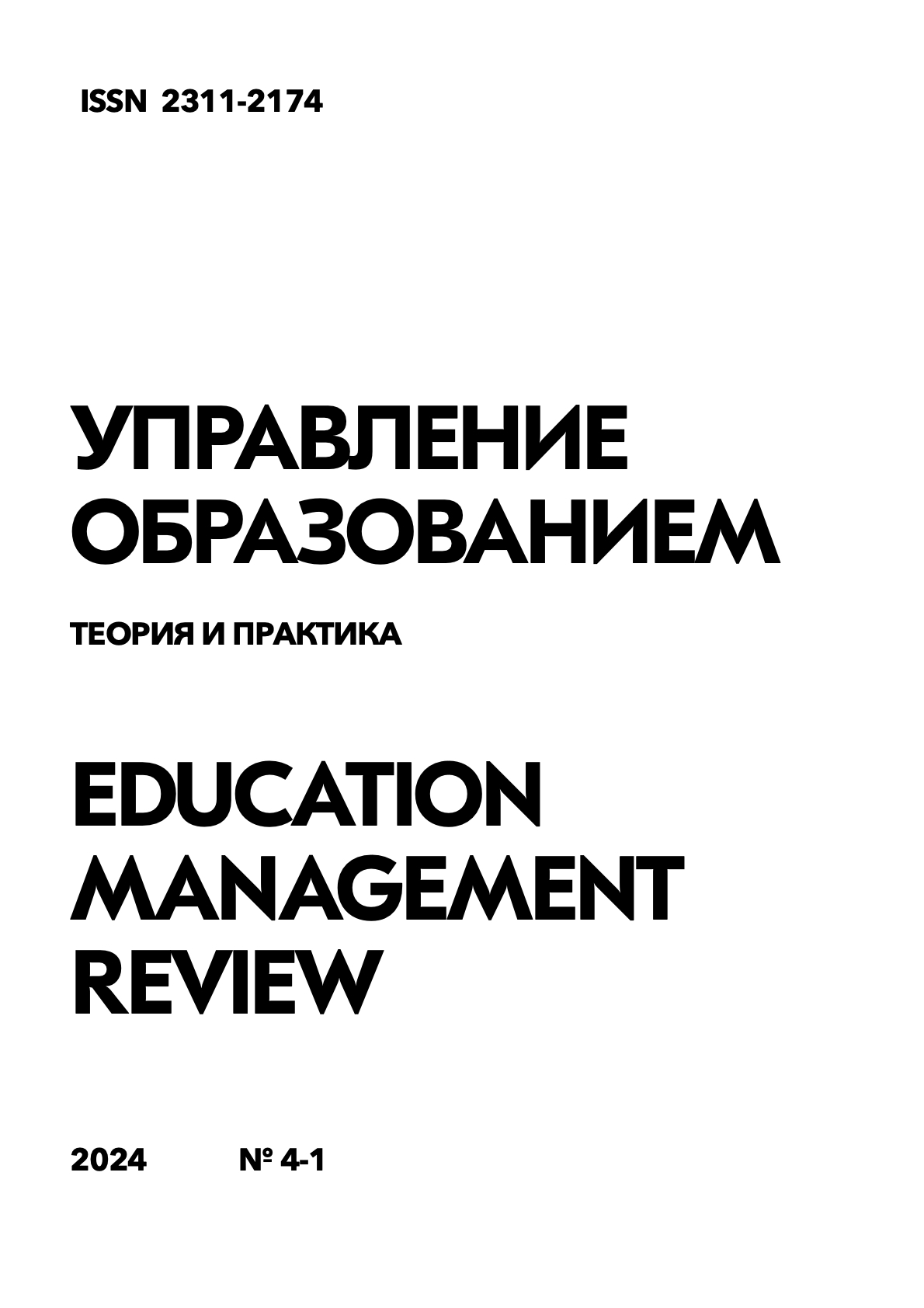Innovative approaches to the management of the educational process in teaching Romance languages at the university
Keywords:
education management, innovative approaches, Romance languages, interactive learning, project activities, information and communication technologies, student autonomy, communicative competenciesAbstract
The article is devoted to innovative approaches to the management of the educational process in teaching Romance languages in higher educational institutions. The relevance of the research is due to the need to introduce new methods and technologies into the language education system to improve the effectiveness of teaching and the development of students' communicative competencies. The purpose of the work is to systematize and analyze modern approaches to the management of the educational process in the field of Romance philology. The research materials and methods include an analysis of the scientific literature on the problem of education management, as well as empirical data obtained during a pedagogical experiment conducted on the basis of the Kadyrov Chechen State University and the Chechen State Pedagogical University. The experiment involved 60 students of 1-4 courses studying in the field of Linguistics (profile "Theory and methodology of teaching foreign languages and cultures"). To assess the effectiveness of innovative approaches, methods of questioning, testing, observation and statistical data processing were used. The results of the study showed that the introduction of innovative approaches such as interactive learning, project activities, the use of information and communication technologies (ICT) and the development of student autonomy helps to increase students' motivation to study Romance languages, improve their academic performance and develop professional competencies. Thus, according to the survey, 87% of students in the experimental group noted an increased interest in the language being studied, and the average score at the end of the semester in this group was 1.5 points higher than in the control group (4.7 vs. 3.2). In addition, the use of ICT has made it possible to optimize the process of managing educational content and ensure the individualization of learning by creating personalized educational trajectories. The practical significance of the research lies in the possibility of using its results to improve the process of teaching Romance languages in universities and improve the quality of language education. The proposed innovative approaches can be integrated into existing educational programs and adapted to the specifics of a particular educational institution.
References
Алексеева И.С. Введение в переводоведение: уч. пос. для студ. филол. и лингв. фак. высш. учеб. зав. СПб.: Филологический факультет СПбГУ; М.: Академия, 2004. 352 с.
Гальскова Н.Д., Гез Н.И. Теория обучения иностранным языкам. Лингводидактика и методика: уч. пос. для студ. филол. и лингв. ун-тов и фак. ин. яз. высш. пед. учеб. зав. 3-е изд., стер. М.: Академия, 2006. 336 с.
Зимняя И.А. Психология обучения иностранным языкам в школе. М.: Просвещение, 1991. 222 с.
Коряковцева Н.Ф. Современная методика организации самостоятельной работы изучающих иностранный язык: пос. для учителей. М.: АРКТИ, 2002. 176 с.
Мильруд Р.П. Методика преподавания английского языка: уч. пос. для вузов. 2-е изд., стер. М.: Дрофа, 2007. 253 с.
Полат Е.С., Бухаркина М.Ю., Моисеева М.В., Петров А.Е. Новые педагогические и информационные технологии в системе образования: уч. пос. для студ. пед. вузов и системы повыш. квалиф. пед. кадров. Под ред. Е.С. Полат. М.: Академия, 2002. 272 с.
Соловова Е.Н. Методика обучения иностранным языкам: базовый курс: уч. пос. для студ. пед. вузов и учителей. М.: АСТ: Астрель, 2008. 238 с.
Щукин А.Н. Обучение иностранным языкам: Теория и практика: уч. пос. для препод. и студ. 2-е изд., испр. и доп. М.: Филоматис, 2006. 480 с.
Benson P. Teaching and researching autonomy in language learning. L: Longman, 2001. 260 p.
Dörnyei Z. Motivational strategies in the language classroom. Cambridge: Cambridge University Press, 2001. 155 p.
Harmer J. The Practice of english language teaching. 4th ed. Harlow: Pearson Education Limited, 2007. 448 p.
Little D. Learner Autonomy 1: Definitions, issues and problems. Dublin: Authentik, 1991. 62 p.
Nunan D. Task-based language teaching. Cambridge: Cambridge University Press, 2004. 222 p.
Richards J.C., Rodgers T.S. Approaches and methods in language teaching. 2nd ed. Cambridge: Cambridge University Press, 2001. 270 p.
Thornbury S. How to teach speaking. Harlow: Pearson Education Limited, 2005. 156 p
Downloads
Published
How to Cite
Issue
Section
License

This work is licensed under a Creative Commons Attribution-NonCommercial-NoDerivatives 4.0 International License.




